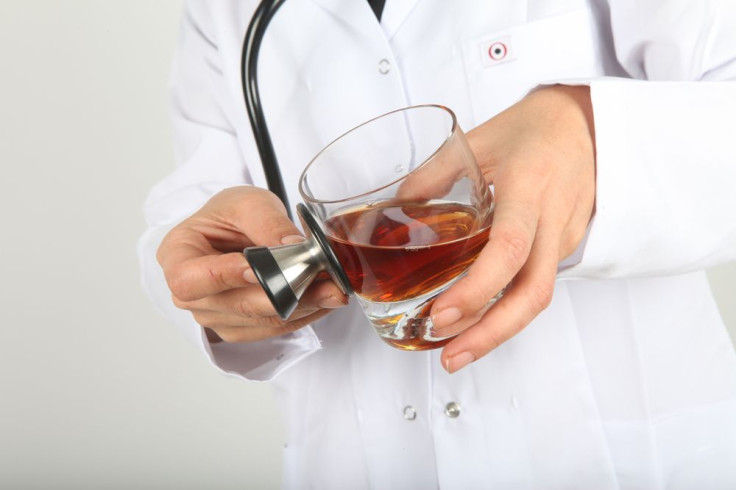Alcohol May Protect Trauma Patients From Cardiac And Renal Complications

Think alcohol can save you from injury? It just might. Researchers at the University of Illinois at Chicago School of Public Health have found that injured patients with alcohol in their blood had a reduced risk of developing cardiac and renal complications, and an overall lesser chance of death.
"After an injury, if you are intoxicated there seems to be a substantial protective effect," said Lee Friedman, author of the study and UIC injury epidemiologist, in a press release. "But we don't fully understand why this occurs."
They looked at 10 years of cases with 85,000 trauma patients whose blood alcohol levels ranged from 0 to 0.5 percent, which is six times the level of legal impairment in the United States. Blood alcohol concentration was the indicator of a reduced risk of complications. Cardiac complications were reduced by 23.5 percent while renal complications were reduced by 30 percent.
Heart disease complications include heart failure, heart attack, stroke, aneurysm, peripheral artery disease, and sudden cardiac arrest. About 600,000 people die of heart disease alone in the United States, which accounts for one out of every four deaths, according to the Centers for Disease Control and Prevention (CDC).
Renal complications include chronic kidney disease, which accounts for more than 20 million people in the United States, according to the CDC. By decreasing the risk of cardiac and renal complications, alcohol could have great potential for trauma patients once it’s researched more.
"Even though alcohol is metabolized quickly by the body, it appears the protective benefit lasts long after there should be only trace amounts in the body," said Friedman, who is assistant professor of environmental and occupational health sciences at UIC.
The study, which was published in the journal Alcohol, raises questions for health care professionals on treatment approaches to traumatic injury patients. It begs the question: should their blood be thinned by alcohol before undergoing treatment?
Researchers are still unclear if alcohols’ seemingly protective effect kicks in at the time of injury when the alcohol is still in the blood, or if the benefits occur as a response to injury.
There have been more than 100 studies that show a healthy relationship between alcohol and a reduced risk of heart attack, clot-caused stroke, peripheral vascular disease, sudden cardiac death, by about 25 to 40 percent, according to the Harvard School of Public Health.
"The current analysis shows there were reductions in medical complications dominating the cardiovascular system and kidneys, which provides clues to solving this interesting and potentially life-saving puzzle," Friedman said.
Source: Lee S. Friedman. Complications associated with blood alcohol concentration following injury. Alcohol. 2014.



























